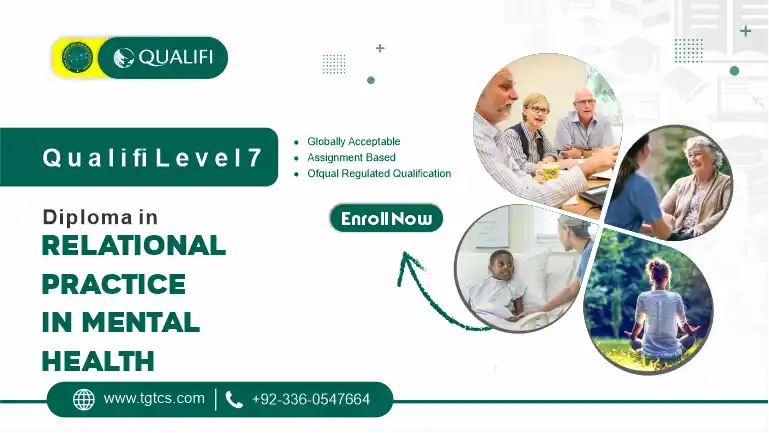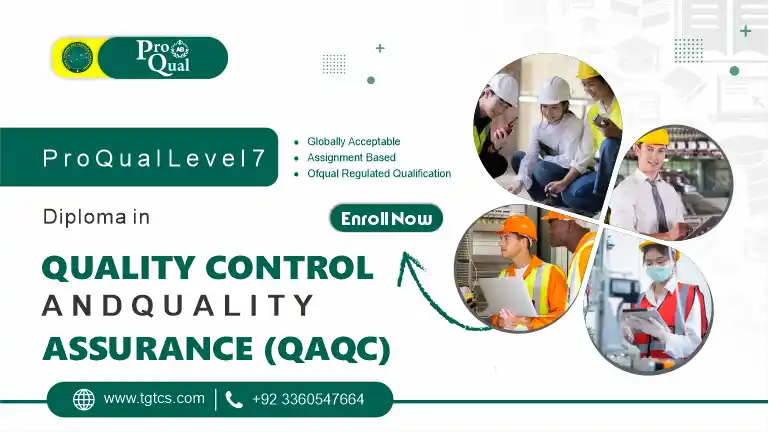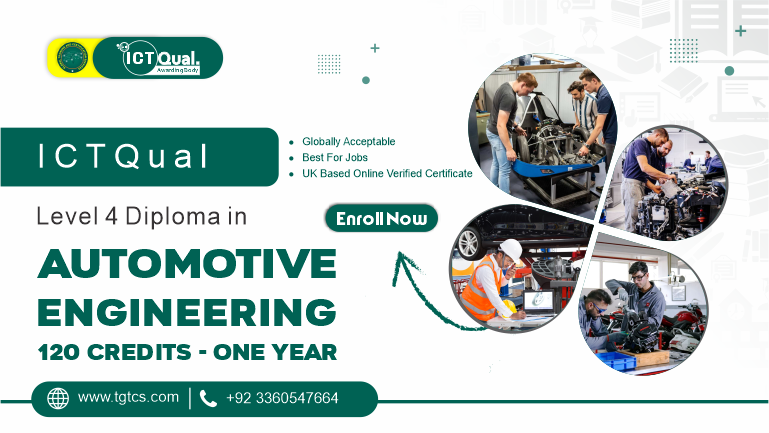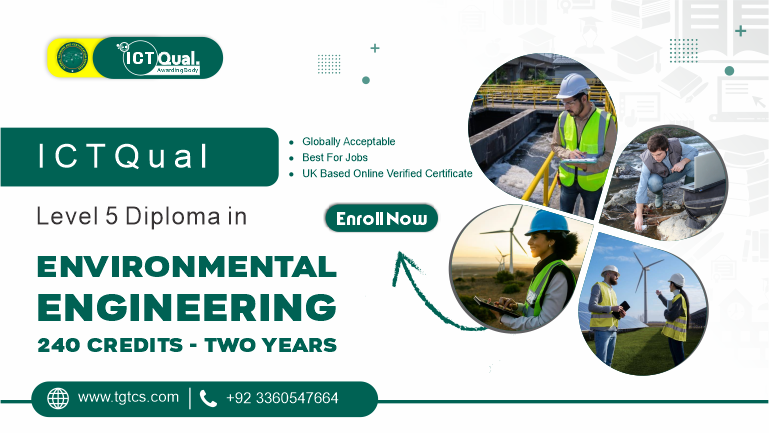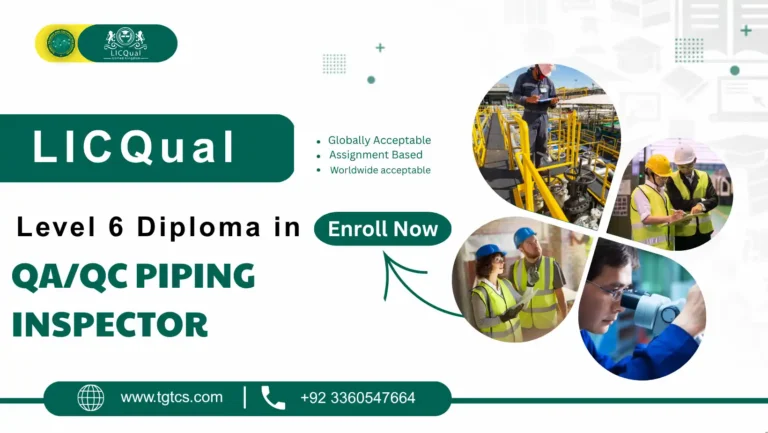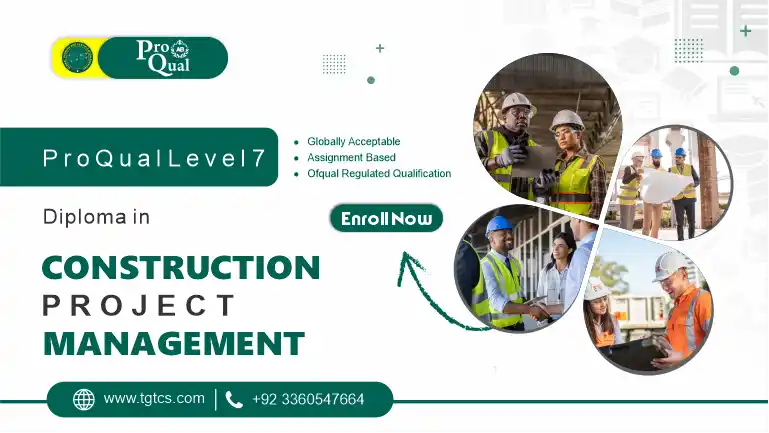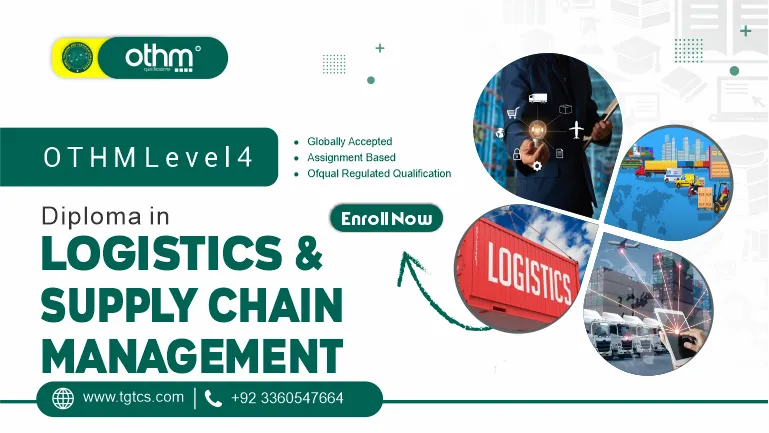Qualifi Level 7 Diploma in Relational Practice in Mental Health
Take your career to new heights while enhancing workplace safety. Discover the art of fostering a secure and healthy work environment.
In the evolving landscape of mental health care, the emphasis on building strong, empathetic relationships between practitioners and clients is more crucial than ever.
The Qualifi Level 7 Diploma in Relational Practice in Mental Health offers a comprehensive path for professionals seeking to deepen their expertise in relational practice and enhance their ability to provide compassionate, effective care.
This advanced diploma is designed to equip you with the skills and knowledge needed to excel in the field of mental health, focusing on the relational aspects that underpin successful therapeutic interventions.
The Qualifi Level 7 Diploma in Relational Practice in Mental Health is a postgraduate qualification aimed at developing advanced relational skills and theoretical knowledge for professionals working in mental health settings.
This diploma emphasizes the importance of therapeutic relationships, communication, and person-centered care in improving mental health outcomes.
The program combines theoretical learning with practical application to ensure that graduates are well-prepared to handle complex mental health challenges with empathy and effectiveness.
Position yourself for leadership and specialist roles within mental health services. The diploma enhances your qualifications and makes you a competitive candidate for advanced positions in the field.
The Qualifi Level 7 Diploma in Relational Practice in Mental Health offers a transformative opportunity for mental health professionals to elevate their practice through advanced relational skills and person-centered approaches. By focusing on the core elements of effective therapeutic relationships, this diploma prepares you to deliver compassionate, ethical, and impactful mental health care.
If you are passionate about improving your practice and advancing your career in mental health, this diploma provides the tools, knowledge, and credentials to make a significant difference in the lives of those you support. Embrace this opportunity to enhance your expertise and make a lasting impact in the field of mental health.
The Global Training and Certification Services (tgtcs) is Offering All Qualifi Certifications in Association with Inspire College of Technologies Uk (ICTQual).
The Qualifi Level 7 Diploma in Relational Practice in Mental Health is a specialized postgraduate qualification designed for mental health professionals seeking to advance their skills in relational and person-centered practice.
This diploma focuses on the essential role of therapeutic relationships in effective mental health care, providing in-depth training in building and maintaining strong, empathetic connections with clients.
The course covers advanced communication techniques, person-centered approaches, and ethical considerations, equipping learners with the expertise to enhance client engagement and improve treatment outcomes.
Ideal for experienced practitioners, therapists, and those aspiring to leadership roles, this diploma offers practical insights and strategies to excel in delivering compassionate and effective mental health support.
Mandatory Units
- Neurobiology, Psychodynamic Theory and Practice
- Trauma-informed Approach in Mental Health
- Presenting Issues and Diagnoses in Mental Health
- Enabling Recovery in Mental Health
- Social Dynamics in Mental Health
- Professional Skills in Mental Health
Upon completing the Qualifi Level 7 Diploma in Relational Practice in Mental Health, learners will achieve the following learning outcomes:
- Advanced Relational Skills: Demonstrate the ability to establish and maintain effective therapeutic relationships with clients, using advanced relational practice techniques to enhance engagement and trust.
- Expert Communication Techniques: Apply sophisticated communication skills, including active listening, empathetic responses, and reflective practice, to support and facilitate meaningful interactions with clients.
- Person-Centered Practice: Implement person-centered approaches tailored to individual needs, ensuring that care and support are aligned with the values and preferences of clients.
- Ethical Decision-Making: Navigate complex ethical dilemmas in mental health practice, upholding professional standards and ensuring that interventions are conducted with integrity and respect.
- Reflective Practice: Engage in critical self-reflection and evaluation of your practice, using insights gained to continuously improve and adapt your approach to relational practice.
- Integration of Theory and Practice: Synthesize theoretical knowledge with practical application, using evidence-based practices to inform and enhance your relational and therapeutic work with clients.
- Enhanced Professional Competence: Develop advanced skills that contribute to professional growth and effectiveness, preparing you for leadership roles or specialized positions within mental health settings.
- Cultural and Contextual Sensitivity: Demonstrate an understanding of and responsiveness to diverse cultural, social, and contextual factors that impact relational practice and mental health care.
- Collaboration and Teamwork: Foster collaborative relationships with other professionals and stakeholders, contributing to integrated care and multidisciplinary approaches in mental health settings.
- Innovative Practice Development: Contribute to the development and implementation of innovative practices in relational mental health care, addressing emerging trends and challenges in the field.
Some benefits of this course are:
- Enhanced Relational Skills: Develop advanced skills in building and maintaining effective therapeutic relationships, which are crucial for successful client engagement and treatment outcomes in mental health care.
- Advanced Communication Techniques: Gain expertise in sophisticated communication methods, including active listening and empathetic responses, to improve your interactions and effectiveness in therapeutic settings.
- Person-Centered Approach: Learn to apply person-centered practices that focus on the individual needs and preferences of clients, ensuring that care is tailored to their unique circumstances and values.
- Ethical and Professional Excellence: Strengthen your ability to navigate complex ethical issues and maintain high standards of professional practice, ensuring that your interventions are conducted with integrity and respect.
- Reflective Practice Development: Enhance your self-reflection and critical evaluation skills, allowing you to continuously improve and adapt your approach based on insights gained from your practice.
- Integration of Theory and Practice: Bridge the gap between theoretical knowledge and practical application, using evidence-based practices to inform and enhance your relational work with clients.
- Career Advancement: Position yourself for advanced roles and specialized positions within mental health services, such as senior therapist, clinical supervisor, or mental health consultant.
- Cultural Competency: Develop an understanding of cultural and contextual factors affecting relational practice, enabling you to provide more sensitive and effective care to diverse populations.
- Collaborative Capabilities: Improve your ability to work collaboratively with other professionals and stakeholders, contributing to integrated care and multidisciplinary approaches in mental health settings.
- Innovation in Practice: Equip yourself with the skills to contribute to the development of innovative practices and solutions in mental health care, addressing emerging trends and challenges in the field.
- Flexible Learning Options: Benefit from flexible study formats, including online and part-time options, allowing you to balance your professional responsibilities with your educational goals.
- Networking Opportunities: Connect with fellow professionals and industry experts, expanding your network and gaining valuable insights and opportunities within the mental health field.
The Qualifi Level 7 Diploma in Relational Practice in Mental Health is tailored for a specific group of professionals who are eager to advance their expertise and impact in the field of mental health. The ideal learner for this course typically includes:
- Experienced Mental Health Professionals: Individuals who have substantial experience working in mental health settings and are looking to enhance their relational practice skills and deepen their understanding of therapeutic relationships.
- Therapists and Counselors: Practitioners currently working as therapists, counselors, or similar roles who seek to refine their relational techniques and adopt a more person-centered approach in their practice.
- Clinical Supervisors: Professionals who are responsible for overseeing and supporting other practitioners and wish to develop advanced skills in relational supervision and support.
- Aspiring Leaders and Managers: Those aiming for leadership or advanced management roles within mental health services, looking to build expertise in relational practice to effectively lead and support their teams.
- Policy Makers and Consultants: Individuals involved in mental health policy development or consultancy who need to understand and apply relational practice principles to improve mental health services and outcomes.
- Dedicated Lifelong Learners: Professionals committed to continuous professional development and passionate about staying abreast of the latest trends and best practices in relational mental health care.
- Cultural Competency Enthusiasts: Learners interested in enhancing their ability to work with diverse populations and understand the cultural and contextual factors that influence relational practice.
- Reflective Practitioners: Individuals who value self-reflection and are committed to evaluating and improving their practice based on insights gained from their professional experiences.
- Innovative Thinkers: Those who are keen to contribute to the development of innovative practices and solutions in mental health care, and who are interested in addressing emerging challenges in the field.
- Flexible and Motivated Individuals: Professionals who can manage their studies alongside their existing responsibilities, benefiting from flexible learning options such as part-time or online study formats.
Progression Route
- Achieve Academic Excellence: Seamlessly transition to a prestigious university to complete a master’s degree, leveraging your Level 8 Diploma to enrich your academic journey and deepen your expertise.
- Elevate Your Professional Path: Step into advanced roles in related professions, applying your enhanced skills and knowledge to drive innovation, lead teams, and achieve impactful outcomes in your field.
Course Overview
Course Level
Level 7
Course Units
6 mandatory Units
Duration
6 to 12 Months
